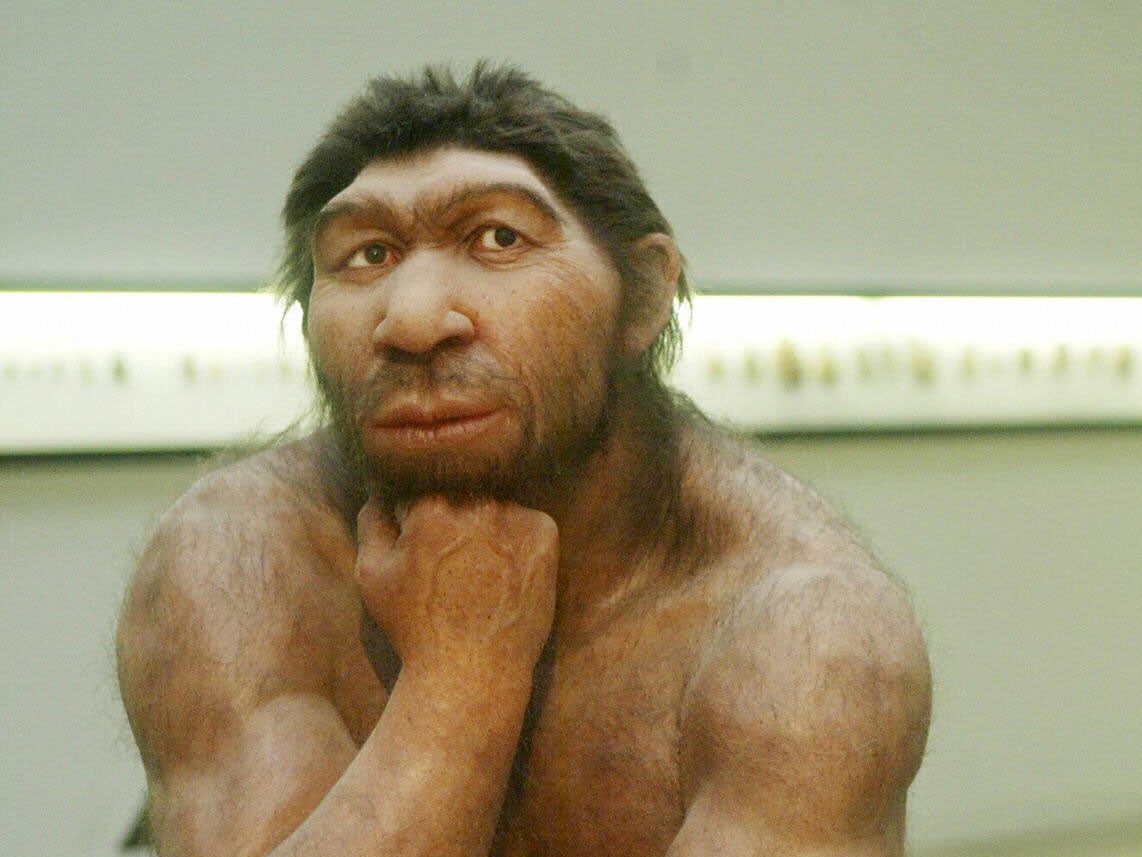Modern humans beat Neanderthals because we can happily breathe in toxic smoke from cooking meat, scientists say
The same mutation might have made us enjoy smoking

Your support helps us to tell the story
From reproductive rights to climate change to Big Tech, The Independent is on the ground when the story is developing. Whether it's investigating the financials of Elon Musk's pro-Trump PAC or producing our latest documentary, 'The A Word', which shines a light on the American women fighting for reproductive rights, we know how important it is to parse out the facts from the messaging.
At such a critical moment in US history, we need reporters on the ground. Your donation allows us to keep sending journalists to speak to both sides of the story.
The Independent is trusted by Americans across the entire political spectrum. And unlike many other quality news outlets, we choose not to lock Americans out of our reporting and analysis with paywalls. We believe quality journalism should be available to everyone, paid for by those who can afford it.
Your support makes all the difference.Modern humans might have beaten the neanderthals because because they couldn’t stand the heat and had to get out of the kitchen, scientists have suggested.
Our ancestors may have had an evolutionary advantage in the kitchen because they were more immune to the effects of toxic chemicals that came from cooking meat and burning wood, according to a new study.
We got that power because of a genetic mutation, the study says. And since modern humans from our species, the Homo sapiens, are the only primates carrying it, it would probably have helped them get the advantage in the evolutionary war.
As such it might help why modern humans were able to flourish as their Neanderthal cousins died out, about 40,000 years ago.
But it might also explain why we took up smoking, since the same mutation helps people enjoy breathing in toxic smoke.
Lead researcher Professor Gary Perdew, from Pennsylvania State University, said: "For Neanderthals, inhaling smoke and eating charcoal-broiled meat, they would be exposed to multiple sources of polycyclic aromatic hydrocarbons, which are known to be carcinogens and lead to cell death at high concentrations.
"The evolutionary hypothesis is, if Neanderthals were exposed to large amounts of these smoke-derived toxins, it could lead to respiratory problems, decreased reproductive capacity for women and increased susceptibility to respiratory viruses among pre-adolescents, while humans would exhibit decreased toxicity because they are more slowly metabolising these compounds."
Researchers have previously found evidence that neanderthals as well as modern humans used fire to cook and keep warm.
Co-author Dr George Perry, also from Pennsylvania State University, said: "Our hominin ancestors - they would technically not be called humans at that time - were likely using fire at least a million years ago, and some infer an earlier control and use of fire approximately two million years ago.
"Cooking with fire could have allowed our ancestors to incorporate a broader range of foods in our diets, for example, by softening roots and tubers that might otherwise have been hard to chew. Cooking could also help increase the digestibility of other foods, both in chewing time and reduced energetic investment in digestion."
The same mutation might have led humans to be able to smoke – and so given rise to cigarettes.
"Our tolerance has allowed us to pick up bad habits," said Prof Perdew.
The research is published in the journal Molecular Biology and Evolution.
Join our commenting forum
Join thought-provoking conversations, follow other Independent readers and see their replies
Comments